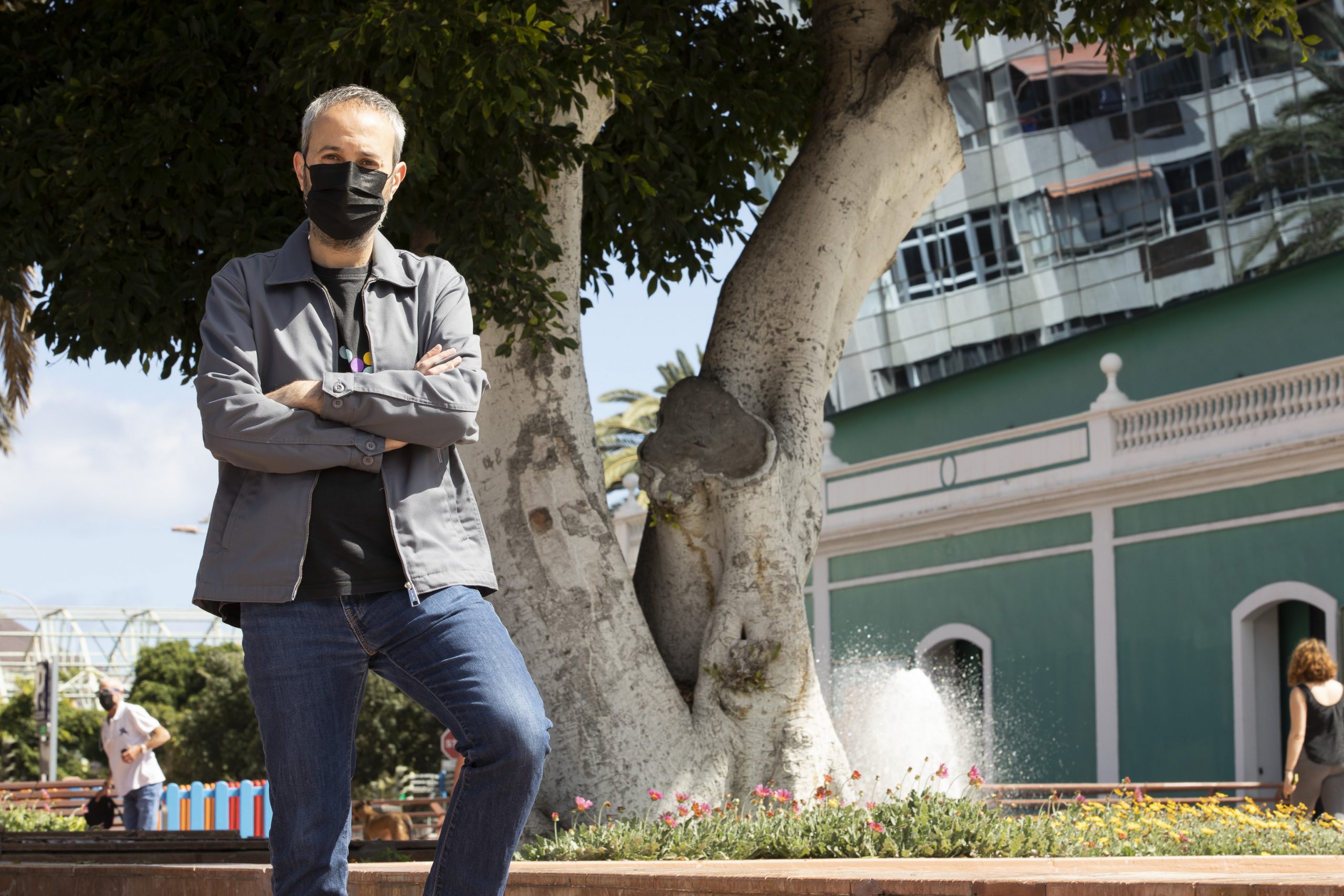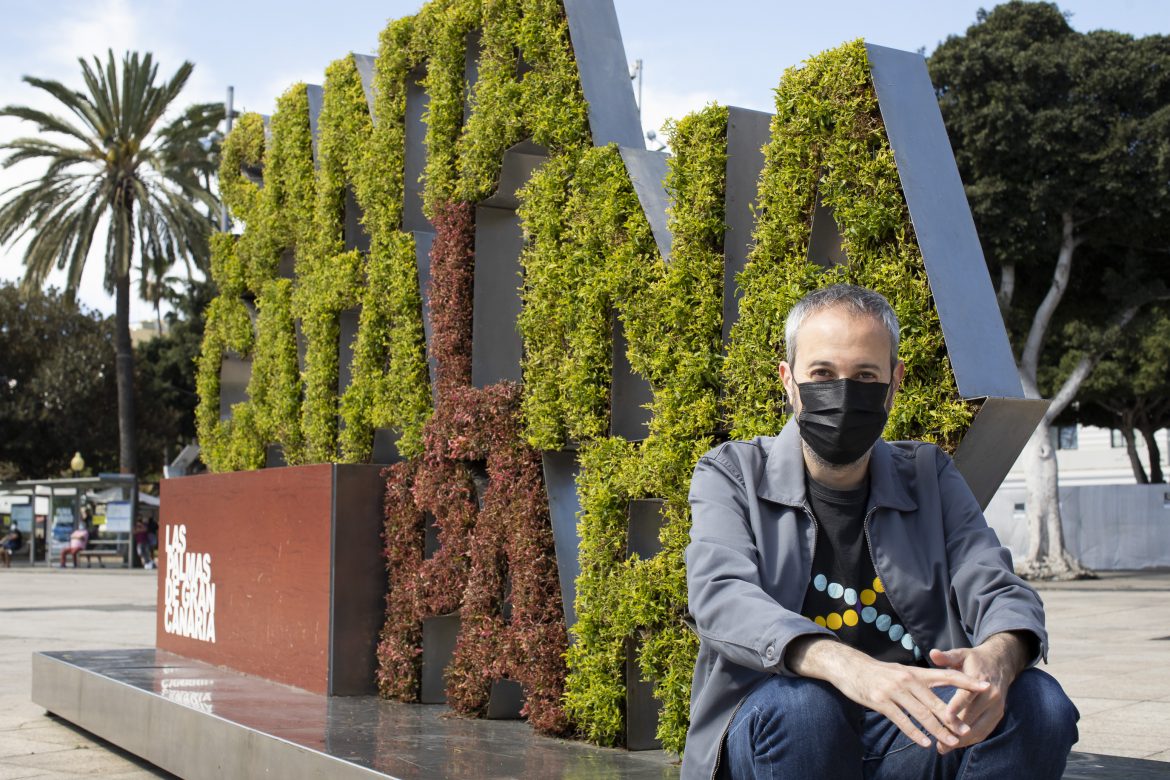The filmmaker from Bilbao rigorously captures the research of the official history documents and their contrast with Bubi people’s oral history
The audience will be able to enjoy this double session on Saturday 10 and on Sunday 18 at 5:30 pm

Las Palmas de Gran Canaria. 10/04/21. 20 edición Festival Internacional de Cine Las Palmas de Gran Canaria. Pase gráfico y encuentro con medios del director de “Anunciaron Tormenta” Sección Panorama España, Javier Fernández Vázquez,. Foto Quique Curbelo
Las Palmas de Gran Canaria, Saturday 10 April 2021.- Panorama Spain presents in Las Palmas de Gran Canaria International Film Festival’s 20th anniversary filmmaker Javier Fernández Vázquez’s documentary film A Storm Was Coming, a radical feature that relies on oral tradition and is useful for rethinking colonialism’s memory. A research, in a contemporary tone, about those sinister traces left behind in Equatorial Guinea’s Spanish colony.
On the basis of original colonial documents and of a historical event that happened in 1904, A Storm Was Coming is an inquiry between past and present that investigates Equatorial Guinea’s Spanish colonial period at the beginning of the 20th century. Its director does son through several documents from that time, with a significant presence of oral tradition as an absolutely personal proposal from the narrative point of view.
A Storm Was Coming questions how Ësáasi Eweera, one of the last Bubi leaders from the island of Bioko in Equatorial Guinea, and a problem for Spanish colonial powers, died in 1904 under strange circumstances. This unresolved case has been reopened over a century later, starting from Eweera’s ascension to the throne and getting to the last consequences of his disappearance. Archive documents are the basis for this research, but even with them there are still some unresolved questions. It’s an axiom that has been translated here to the visual world in the form of historical pictures, voice-overs and a story of investigation which is both an accusation against colonialism and a study of what it represented.
For the filmmaker, with this audiovisual essay he intended to reflect on how history has been built from power, from conflicts, and how it has been reshaping and obscuring itself. The film, he explained, “is an attempt to juxtapose or answer the Spanish official version of this historical event, confirmed by documents, letters and reports, with those oral versions that have survived from generation to generation until today”. It is, he added, a correlative that questions that crime through oral tradition, archive recordings and new pictures.
The filmmaker from Bilbao always understood that “it had to be as true and literal as possible to the documents the film is based on”, those letters and those reports that, at some point, he admits, “can be boring or repetitive”. “It was important that they were listened to just as they were conceived in order to uncover that sort of modelling of a truth, of how a version goes from one civil servant to another to create a final version kinder and more coherent with those Christian values they wanted to impose in that society”, he explained.
With A Storm Was Coming Javier Fernández Vázquez didn’t want to limit himself to just portray “how a false truth is constructed”, so he travelled to Equatorial Guinea and confirmed, after contacting Bubi people descendants, that there was in fact a story. “There were some versions which had survived and differed a lot from the Spanish one”. That oral tradition he was collecting drove him to keep on investigating and identifying the places where the events happened, something that wasn’t easy. In the end he managed to show them because “these places”, he said, are marked by history “because there’s always something left”
In order to dig into the sinister discrepancies between colonialism’s version and its survivors’ lasting memories, he was accompanied in his second trip by Guinean writer and scholar Justo Bolekia (settled in Spain), who got him in contact with more people so that they could gather testimonies. Most of them were filmed in the homes of the protagonists who delve into their memories because Equatorial Guinea is a country where obtaining recording permits is very difficult and where there’s no free movement around the territory.
After appearing in the Forum section at the Berlin Festival, A Storm Was Coming will be screening on Saturday 10th and Sunday 18th at 5:30 pm at Cinesa El Muelle.
The Film Festival’s full program is available at lpafilmfestival.com, and tickets are on sale through their seats’ traditional portals: entrees.es for Miller’s programming (Camera Obscura, The Freakiest Afternoon and certain special sessions related to French filmmaker Chris Marker’s centenary anniversary); and at cinesa.es (Cinesa’s website), which offers the rest of the program, except for Déjà Vu, which will be screened at the Elder Museum of Science and Technology (where MECAS will be held, too).
Share this Post

